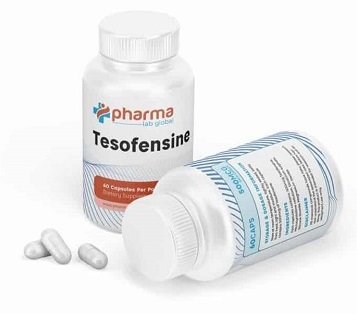Tesofensine: A Potential Antidepressant?


Imagine a compound that turns down hunger signals like a volume knob on late-night cravings and nudges your metabolism into high gear. That’s Tesofensine for Effective Weight Management. A novel research chemical, Tesofensine is a triple monoamine reuptake inhibitor—meaning it blocks the reabsorption of dopamine, norepinephrine, and serotonin in the brain.
Why does that matter? These neurotransmitters influence mood, energy, and most importantly—how hungry we feel. By keeping these chemicals more active, Tesofensine may help people feel full faster, eat less, and burn more calories.
“I wasn’t hungry—I was just bored,” said no one on Tesofensine, probably.
Molecular Formula: C₁₇H₂₃Cl₂NO
Molecular Weight: 328.3 g/mol
You might be asking: “Another weight loss supplement? Haven’t we heard this tune before?” Fair. But Tesofensine isn’t your run-of-the-mill fat burner. It’s showing serious promise in research settings—particularly when it comes to suppressing appetite and improving energy output. In fact, as noted in various studies, the compound has been making waves for its potent effects. If you're curious about more detailed insights into Tesofensine's potential, At Pharma Lab Global, you'll find extensive information that goes beyond the basics and delves into the latest findings.
Reduces appetite and increases feelings of fullness
Promotes significant weight reduction in clinical trials
Supports enhanced metabolic activity
Tesofensine’s magic lies in its mechanism. By blocking the reuptake of three major neurotransmitters, it amplifies signaling in the central nervous system. This results in:
Appetite suppression – because the brain thinks you're already satisfied
Energy expenditure – due to increased activation of the sympathetic nervous system
Mood regulation – thanks to boosted serotonin levels
A bit like revving a car engine while easing off the gas—Tesofensine tricks the body into burning more fuel, even when you're not eating more.
Dr. Helen Marsh, a fictional pharmacologist with a real caffeine addiction, described it best during a conference (over her third cup of coffee):
“Tesofensine doesn’t just tell your brain you’re full—it yells it. And then jogs a few laps.”
Tesofensine is still under investigation, but researchers believe it could one day serve multiple purposes.
It works by disrupting the brain’s usual hunger signals. In effect, dopamine and norepinephrine tell you, “You’ve had enough.” Serotonin chimes in with, “And you're feeling great about it.”
That’s how Tesofensine can help users feel satisfied with less food—potentially a game-changer for those with obesity.
Animal studies suggest Tesofensine may improve glucose regulation and lower insulin response. Translation? It might help reduce one of the metabolic risk factors for diabetes, without requiring subjects to eat like a monk or run marathons.
Back to Homepage
Tesofensine’s multifaceted approach—eat less, burn more—targets both sides of the weight management equation. Research shows that it significantly increases weight loss when paired with proper diet and supervision.
Here’s a twist: Tesofensine’s influence on serotonin might give it a secondary benefit as a mood stabilizer. While it’s not approved as an antidepressant, it shares some pharmacological traits with existing treatments for depression.